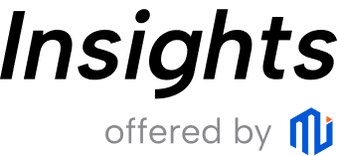Kraken hopes to coax more users to DeFi with blockchain Ink
Centralized cryptocurrency exchange, Kraken, is launching its own blockchain network, Ink, next year, hoping to attract more people to the decentralized finance (DeFi) space. According to Kraken, the Ethereum Layer 2 (L2) blockchain will have a full mainnet launch for retail and institutional users in the first quarter of 2025.
Ink will offer permissionless access to DeFi applications, including trading, lending, and borrowing services without intermediaries. Jonathon Miller, Kraken’s managing director, told Cryptopolitan that one of Ink’s goals is to onboard new people into DeFi by providing easier access. “For too long, capital that could be used on-chain has sat on the sidelines without a clear and secure route forward,” he said.
Miller says Ink will eliminate “points of friction” and allow users to “transfer assets between existing CEX services and new DeFI applications seamlessly.” “Users can onboard fiat currency, convert it into crypto, and use it across supported applications in a matter of minutes,” he added.
Ink is set to offer a developer testnet later in 2024, allowing developers to experiment with decentralized applications (DApps) before the blockchain’s full launch next year. Over a dozen DApps, including exchanges and aggregators, are expected to be available at launch, with potential for future expansion.
Ink joining the Superchain
Miller says Ink will be part of the broader Ethereum ecosystem as part of the Superchain, a network of L2 blockchains built using Optimism’s OP Stack, allowing seamless communication and scalability across networks.
“Ink is built on the Optimism Superchain, which aligns closely with how we see the Ethereum L2 landscape evolving: open-source and interoperable,” Miller said. “The Superchain provides a groundwork for a unified network of OP Stack L2s that seamlessly communicate with one another, an integral step towards a seamless and pluralistic on-chain ecosystem,” he added.
According to Miller, Ink will be “interoperable with other Superchain L2s like Base, Unichain and Sony Chain. It will also be permissionless, enabling developers to build additional applications. “Ink and Base are both built on the Optimism Superchain so both are interoperable and users have the freedom to explore both,” Miller said.
Kraken will be Ink’s sequencer for now
Coinbase’s Ethereum L2 blockchain Base launched in 2023 and offers a platform that supports a variety of DApps, from DeFi to non-fungible token (NFT) marketplaces. Before L2 networks on Ethereum, users could be charged high gas fees or experience slow transactions on the blockchain.
Kraken will initially act as Ink’s sequencer, but Miller says, “This function will eventually be decentralized.” L2 sequencers organize transactions on an L2 protocol to ensure transactions are in the correct order. A sequencer node rolls up transactions into a compressed batch of other transactions and sends them to the Ethereum blockchain.
On Oct. 3, Kraken opened a derivatives trading platform in Bermuda for the first time. On July 30, the exchange received a Class F Digital Business License from the territory’s financial regulator, the Bermuda Monetary Authority (BMA). The license allows Kraken to operate as a digital asset lender and as a digital asset derivative exchange provider in the region.



